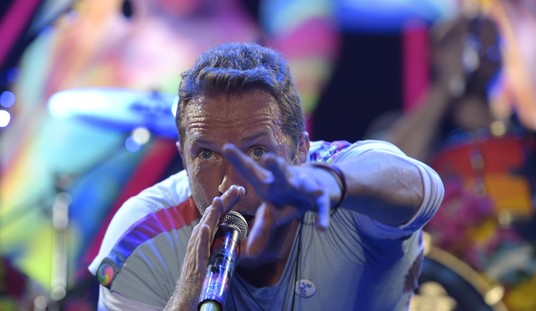At the time of the book’s writing this spring, Limbaugh’s frontrunner for his support in the 2012 presidential race was Sarah Palin, whom he calls “the most prominent, articulate voice for standard, run-of-the-mill, good old-fashioned conservatism.” A surprising second choice so far is Minnesota governor Tim Pawlenty, whom Limbaugh praised as a choice for the vice presidential nomination in 2008.
But it definitely won’t be Mike Huckabee (Limbaugh considers him “an irresponsible populist”) or Newt Gingrich (who has “gone soft” in Rush’s opinion) or once-favored Bobby Jindal (he has stopped referring to him as “the next Ronald Reagan” and scarcely mentions him at all)…
Chafets notes Limbaugh’s libertarian streak, which puts him on the opposite sides of some big issues from family values conservatives.
“He regards homosexuality as, most probably, biologically determined, and while he opposes gay marriage as culturally subversive, he has no problem with gay civil unions. — which is the stance of President Obama and Hillary Clinton… He is not opposed to capital punishment, but he ‘wouldn’t go to the mat over it.”
***
To those who are put off by Limbaugh’s politics, it can be difficult to understand the man’s appeal. Chafets says that away from the microphone, Limbaugh’s persona is dialed down a few notches.
“He’s much less bombastic, he’s much less outspoken,” Chafets says. “In the book I compare him to Muhammad Ali. Muhammad Ali was, in public, a very bombastic guy. And in private people say he was very soft-spoken and that his public persona was just a ramping up of his real personality, and that he did the public persona to gather a crowd. And I think that’s very true of Limbaugh also.”
***
Chafets also reveals Limbaugh’s expanding vision of his own central place and role within the conservative world. “Whatever feelings of inferiority Limbaugh may have had,” Chafets writes, “disappeared as he became better acquainted with the work of his fellow commentators. . . . While Limbaugh appreciated some conservative thinkers — including Justice Antonin Scalia, columnist Charles Krauthammer, and economist Thomas Sowell — he now clearly saw himself as the thought leader of the movement. . . . ‘I know I have become the intellectual engine of the conservative movement.’ ”
Chafets acknowledges that Limbaugh has no conception of fairness or objectivity, that he is not an original thinker, and that he is prone to “hyperbole, sarcasm, and ridicule, none of which is meant to be taken literally.” He’s unnerved by Limbaugh’s “Magic Negro” racial insensitivities and his indifference to real politics. ” ‘There are no books written about great moderates,’ he sometimes says. ‘Great people take stands on principle, not moderation.’ That’s not true of course — the founding fathers Limbaugh venerates compromised their way into a Constitution, and even Ronaldus Maximus [Reagan] knew when to bend. Politics is the art of compromise. But, of course, Limbaugh is not a politician or even a political strategist. He is a polemicist.”
It might seem ominous for an intellectual movement to be led by a man who does not think creatively, who does not respect the other side of the argument and who frequently says things that are not intended as truth. But neither Limbaugh nor Chafets is troubled: “Over the years, [Limbaugh] has endeavored to carry forward the banner of Ronaldus Maximus, which he always credits as ‘Reaganism.’ But as time moves on the memory of Reagan fades. It is Limbaugh’s voice conservatives now identify with. For millions, conservatism is now Limbaughism.”
That is Limbaugh’s achievement. It is Chafets’s story line. And it is American conservatism’s problem.








Join the conversation as a VIP Member